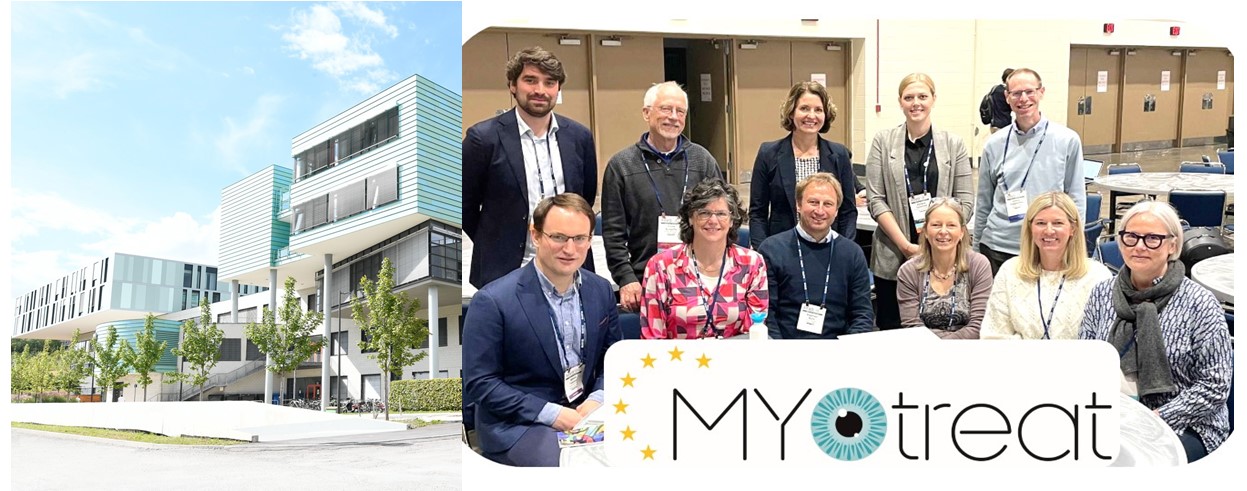Hearing and seeing: Tübingen's pioneering research and education
The Institute for Ophthalmic Research and the Hearing Centre of the University Clinic for Ear, Nose and Throat Medicine, both in Tübingen receive 5.4 million euros from the EU
The Institute for Ophthalmic Research and the Hearing Centre of the Department of Otorhinolaryngology, both in Tübingen, receive 5.4 million euros in funding
The Institute for Ophthalmic Research and the Hearing Centre at the University Hospital of Otolaryngology in Tübingen have been awarded funding for two Marie Sklodowska-Curie doctoral networks. The two projects, 'MyoTreat' and 'CherISH', will employ 14 and 12 doctoral students respectively, training the next generation of researchers to address specific challenges in the field of ophthalmology and ENT. The aim is to develop modern strategies for treating short-sightedness (myopia) and improving ear implants. Both European projects are coordinated and managed by the University of Tübingen.
If your hearing or sight is impaired, you are suddenly faced with a major challenge. It is often no longer possible to cope with everyday life without assistance. People often complain of social anxiety and loneliness. It has been shown that the dysfunction of one of these senses can be the main cause of social isolation or depression. "Studies have also shown a link between hearing loss and an increased risk of cognitive impairment, including dementia," says Professor Christoph Braun from the University Hospital in Tübingen.
Our retina also plays an important role. "Studies have shown that even in children, poor vision or uncorrected visual impairment has a negative impact on attention and school performance and increases psychosocial stress," says Dr Marita Feldkämper from the University Hospital in Tübingen.
As a result of their excellent research in the fields of otology and ophthalmology, the two research institutions have been awarded a total of €5.4 million in EU funding for two groundbreaking research and education projects.
The CherISH Project
Spatial hearing is a crucial factor in controlling attention and promoting speech understanding, especially in noisy environments, which is a major challenge for implant recipients. The first of the two projects, called "CherISH", is jointly coordinated by the Department of Otorhinolaryngology at the University of Tübingen and the Department of Neural Dynamics and Magnetoencephalography at the Hertie Institute for Clinical Brain Research. It is supervised by Prof. Hubert Löwenheim and Prof. Christoph Braun as scientific coordinators and managed by Dr Aurore Brugeaud as manager. The European collaborative project has 13 partners, from Italy to the UK and from France to Hungary, and supports 12 PhD students.
The MyoTreat project
The second project, called "MyoTreat", is led by the Institute of Ophthalmic Research with Dr Marita Feldkämper as scientific coordinator and Dr Sigrid Diether as manager. It aims to train 14 PhD students in research into myopia or short-sightedness. In collaboration with ten other institutions in Europe, the ultimate scientific goal is to develop new strategies for the treatment of myopia. This is particularly important in modern industrialised societies, where myopia has become a major eye problem, especially among young people.
About the Marie Sklodowska-Curie Fellowship
Marie Skłodowska-Curie Grants invest in excellent research and innovation, providing researchers at all stages of their careers with new knowledge and skills through transnational mobility and exposure to different fields and disciplines. They fund the development of excellent training programmes for doctoral and post-doctoral researchers, promote excellence and set standards for high quality education and training of researchers in line with the European Charter and Code of Conduct.




